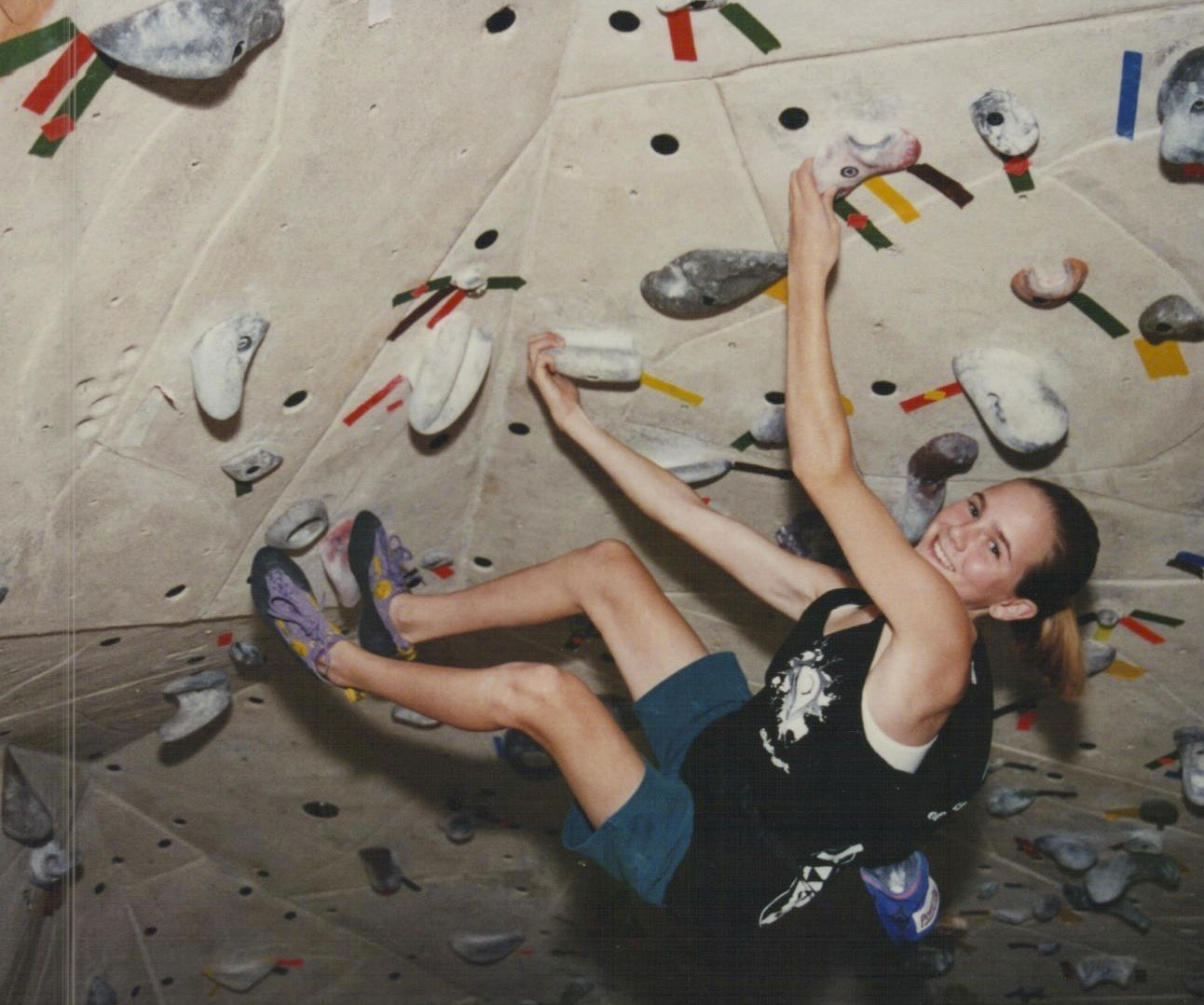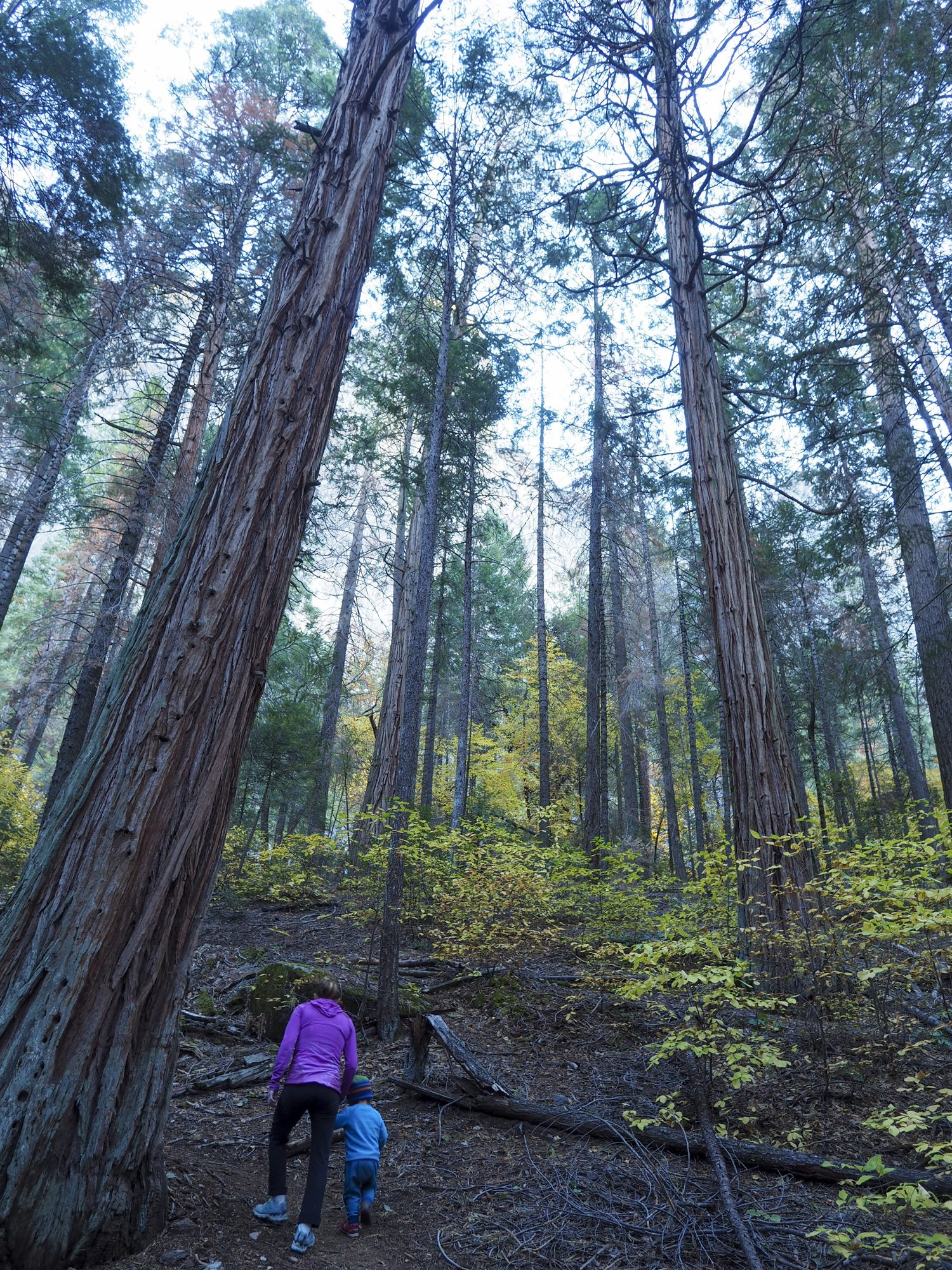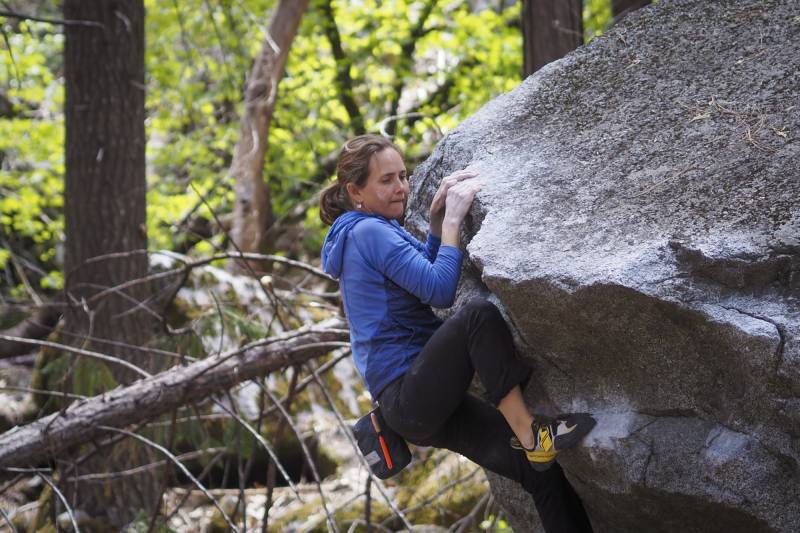Beth Rodden is considered rock climbing royalty.
She has a reputation for conquering some of the most treacherous climbs in the world. In some cases, she was the first person ever to scale such heights. In a long list of accomplishments, a few things stand out. She was the first woman to complete two routes up Yosemite’s notorious El Capitan, with no gear helping to pull her up. She was also the first person ever to climb one of the hardest routes in Yosemite, a route called “Meltdown.”
But despite her success, she was battling injuries, raging self-doubt and trauma.
She chronicles these challenges and her extraordinary climbing career in her new memoir, A Light Through the Cracks: A Climber’s Story. Beth spoke about it with The California Report Magazine’s Bianca Taylor.
Below are excerpts from their conversation. For the full interview, listen to the audio at the top of this story on The California Report Magazine.

Bianca Taylor: How did you first get hooked on rock climbing?
Beth Rodden: My dad took me to the local climbing gym in Davis. He was a recreational climber. I loved the actual movement of climbing. I also really liked the social aspect of it, especially back then. It was much less structured. It was a much scrappier sport back then.
It was totally self-driven because there were no coaches or anything — and I really liked that. There [were] perhaps one or two women on each climbing team versus, you know, a dozen men or something like that. So it was kind of like this alternative sport, you know, it was this sport that was born out of pushing against social norms. [It was] much smaller, much harder for women to make their name in it.
In 1999, one of my climbing heroes, Lynn Hill, invited me on this climbing expedition, all female at the time, which [was] unheard of, to Madagascar to pioneer these first routes and these first ascents. And I feel like on that trip, I just thought, this is what I want to do. I’m all in from here.
In your memoir, you describe harrowing moments during a climbing expedition in Kyrgyzstan in 2000, where you were kidnapped. What happened?
I was 20, and at the time, I remember feeling so grown up. But looking back at it now, it’s like you’re just a child. I didn’t want to recount the entire ordeal [in my memoir], but I wanted to recount my personal experience and how it impacted me.
Honestly, I don’t think I could have done that until recently. I was very unaware and naive about how much it permeated my life and where it would bubble up. I think it took 20 years for me to be able to really dig back into those memories and those details and know how they impacted me personally.
Tell me about the significance of completing Meltdown.
At the time, it had never been done before. So I was trying to do the first ascent of it, which means people had maybe tried it, but nobody had completed it. It was the hardest thing that I ever did. I had worked harder on it than any other climb. [But] I don’t think I appreciated how hard it was for me or the climbing world until it started to get repeated in the past handful of years.
It’s a lot more pressure as a female to go out on a limb and say it’s the hardest crack climb in the world, which is traditionally a very male-dominated part of the sport. And so to say that here’s this, you know, small in stature, quiet female that’s now established one of the hardest crack climbs in the world was a pretty big statement.
What’s your experience as far as sexism and machismo within the climbing industry?
Growing up in the ’90s and climbing in the early 2000s, it was a very big community of bravado and that type of thing. So, I just subscribed to that.

Do we still have a long ways to go? Yes, but it’s absolutely changing. And I see women and all genders being portrayed differently. I see all body types being portrayed differently, more equity in what’s being marketed and who’s being taken on to teams. So it’s definitely changing. But does that still exist? Absolutely.
Honestly, becoming a mother has helped because you’re just this person who now is trying to set an example for your child, but then also realizing that, wait, why did I subscribe to this when these aren’t necessarily great things? And why is this something that is so celebrated in the climbing community when we could be kinder to ourselves and each other?
Has climbing ever taken a toll on your mental health?
Yeah. I don’t think it’s a good thing, honestly. It’s not good to totally deny all your feelings and all your emotions. In terms of physical things, I was just like this little processor, like, OK, well, that’s going to require a Band-Aid, not a big deal, or that’s going to be really dangerous, maybe a big deal. I was pretty good at thinking, that’s OK.
I think what really started to build inside me was just trying to shove down and ignore the fear that it would constantly come up. I just assumed that I was always so close to death when I was climbing. You know, that the other shoe would drop, that something terrible would happen. Because it had happened. But it definitely filled my brain all the time, which was an interesting conflict because it was something that I loved, and it was something that I was really driven to do, but it was also something that totally terrified me.
What are your future climbing goals?
Gosh, I feel like I definitely have a list that I always have there. And depending on what season it is, where I find myself in the world, what shape I’m in, then I’ll kind of pursue those. But I, thankfully, feel like I’m also at a point where if I never get to any of them, I’ll still be climbing. I’ll still be happy about it.
Beth Rodden now lives with her family near Yosemite. Her memoir, A Light Through the Cracks: A Climber’s Story, is available now. You can see her speak at Sausalito Books by the Bay on May 21.

